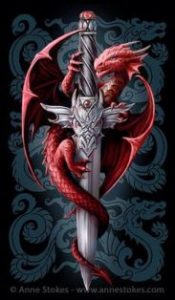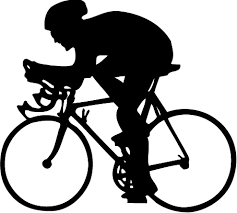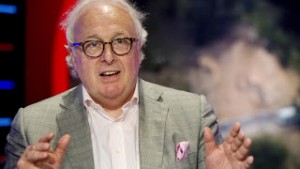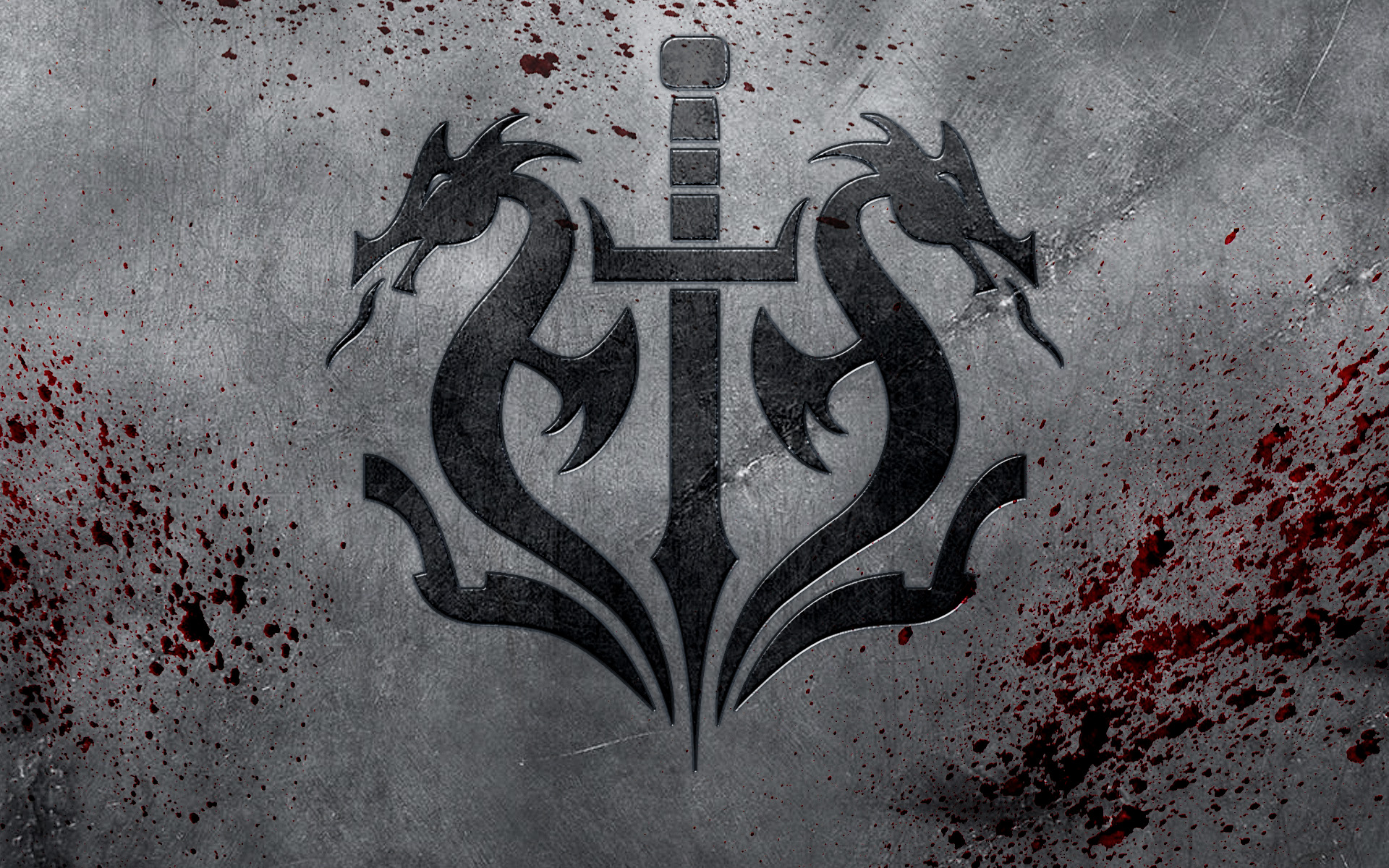'Hi, dad. How are you today?' I close the door of his apartment and walk through the small kitchen into the living room.
As always dad sits in his favorite chair, the worn out light brown corduroy swivel chair we carry around every time dad has to switch from retirement homes. Her chair, a lasting memory of mom.
'Dad. How are you?' No response. His grey eyes watch the park across the retirement home. Not that he can see much but he likes the idea of knowing the world is out there. The crossword book on his lap is still on page 31, the pen in his trembling hand still has the cap on it. He liked doing crossword puzzles. Keeps the brain in shape, he always said.
I give him a kiss on his head, but he doesn't notice it. I place a hand on his shoulder. 'Hi, dad.'
'John, son. I didn't hear you come in. Good to see you.' As if rudely awakened from a dream he tries to get out of his chair. 'Have a seat. I'll make you some coffee.'
'Peter, dad. Sit down, I'll make us some coffee.' I pick up the book that fell from his lap as he tries to get back in his chair and step into the kitchen area.
'Yes. Good. Good to see you, son. It's been awhile, hasn't it. Haven't seen anybody for a long time now for that matter.'
'Dad, John visited you this morning.'
'This morning?' For a moment he goes silent. 'No, that can't be right. I never get any visitors.'
The dirty dishes on the counter tell the real story. My brother John and I visit dad every day since mom died. John has a hard time seeing dad like this: fragile, alone, unrecognizable, nothing like the energetic man he used to be when we grew up. Still he visits every morning, leaving again as fast as he can.
I put my coffee cup on the small table next to the plate with one cookie left on it and put my dad's cup on the high table next to his chair. 'Thank you, John.'
For a few minutes we just sit there in silence.
The swivel chair moans as he turns the chair to reach for his coffee. 'Have you talked to Peter lately. It's been so long since I've seen him.'
'Dad, I am Peter.'
'Yes, yes. How's your wife.'
'Daisy died four years ago. Marc is doing fine, thank you.'
'Oh, that's sad. Terrible. My condolences.'
'I'll pass them on to John.' I finish my coffee, write a few words to John in the diary, wash the dishes and refill the empty plate with cookies. I kiss dad on his cheek and lay the crossword book and pen on his lap, page 31.
'See you again tomorrow, dad.'
As I open the door I hear the moaning of the chair. I look back at my father, tears rolls down my face. Dad already turned his chair and stares through the window.
'Bye, John.'
Categorie archieven: English
Inner struggle
 The inner struggle is part of who I am: calm, control; panic, chaos; invisible, centre of attention. A fragile balance between existence and to be forgotten. I scream silently. A breeze, a shadow on the wall.
The inner struggle is part of who I am: calm, control; panic, chaos; invisible, centre of attention. A fragile balance between existence and to be forgotten. I scream silently. A breeze, a shadow on the wall.
My dragons are my strength. I don’t fight them anymore. They’re the reason I exist, they give my hope. Sleeping monsters, guarding my soul. Scorched earth, destructive when awoken.
I’m torn by an invisible force, a fire rages inside me. You see me, but look right through me. Turned to dust, before life wasted.
The sword through my heart, the knife in my back. I wear them with pride. You try to defeat me, a battle with no end. I’m the George of my own dragon.
![]()
Letting go (the pain remains)
As I open the door, the room still looks the same.
Everything’s left as it was left behind.
Nothing’s changed, thrown away or moved.
A time capsule.
The stale smell of a boy’s bedroom has gone: the smell of the soccer pitch, smell of fear to fail, fear for girls, smell of too much deodorant.
His bed is still unmade. The pillow settled back, the shape of his head still visible of all the use of hair products. When I hold the pillow really close, I can still smell him. So much different than the smell of when he was a baby, the smell that leaves you crying when you think of the innocence, helplessness. When your child still needs you.
The cable of his laptop still lies on his bed, forgotten. His thoughts were always all over the place. The bloc note on his desk is ready to be used for homework, homework he never felt like doing, homework he never really did. The ink of the handwritten letter smudged.
I pick up the bloc note from his desk, sit at the edge of his bed and read the note, again. I must have read it 150 times already. I know every word, every blank space. He never was much of a talker. The written words have left a mark on my soul: the hopelessness, desperation. Unable to explain how much he suffered, how they broke his will.
It’s been a year now.
He closed the door behind him, on his way to school. The daily commute: hiding in the mass, loneliness in the crowd.
I really didn’t see it coming. You always think it happens to others.
‘Do your best,’ my last words. Soulless, my thoughts already with the daily boredom of my job. My job that always came first, before friends, family. Selfish.
‘Whatever,’ his final word. No hug, no kiss, no love. A teenager.
The phone rang at eleven that morning. Never made it to school. Cellphone no service. No connection to the world. Invisible, escaped from hell. His backpack and laptop were never found. His body found under the bridge. Lives shattered.
The bullying stopped.
So much pain, right under my nose. Hidden scars worn in public, not able to reach out. Unable to reach me.
I press the pillow closer to my face. I can’t go on, without him.
![]()
The hatred never faded
This weekend, we visited former transit camp Westerbork in Hooghalen (NL). It might sound strange, but this visit has been on our list of places to see for quite some time. It just never happened, due to distance. This weekend we suddenly found ourselves within biking distance of the camp – thanks to a family trip we were a mere 17 kilometers away – and being the (educationally) responsible parents we are, we decided to take our children and elderly along for a fun outing (well, not ‘fun’, but you get our drift).
After a short visit to the memorial center, we stepped onto a shuttle bus and got off again 2.5 kilometers later at the open boom barrier of what was once camp Westerbork. An area surrounded by trees, serving as a last stop on the road to camps of complete and utter destruction of human life.
A camp nurtured by the ultimate illusion of safety: hope. Hope for survival, hope for a future, hope for the return of those who had been put on the trains, hope of missing the next train out. Where hope kept you alive, life was ruled by constant fear: fear to be on the list, fear to end up on the train, fear of having to leave your husband, wife and children behind, fear of not knowing where you were going. A camp where children, babies, the sick and the elderly were considered dispensable, useless, nothing but bodies on the train. If you couldn’t work, you found yourself on transport to an extermination camp within a week – the final solution to the Jewish Problem.
Little remains of the camp itself. An area of 500 by 500 meters where a handful of elevated areas indicate where wooden barracks once stood. After the war people were eager to forget and move on with their lives. Camp Westerbork would later accommodate another tragedy: The Moluccan Problem.
By order of the government this arid, barren moor was afforested and during the 1960’s the Westerbork Synthesis Radio Telescope started using the camp terrain. Only when remembrance became increasingly important were steps taken to preserve the few remaining barracks, which had been used as barns.
Our guide took us through the history of the camp and told us the stories of three people who had lived in the camp before being deported. He told us about postcards pushed through the spaces between the wooden floor beams of moving trains; the last piece of evidence that they had ever existed. He spoke of the children that were deported, of the 93 deportations that took place, of the almost 100.000 people pushed into wagons as if they were cattle, 70 people cramped in a wagon, to spend three days without food and with one barrel of drinking water and one barrel to defecate in, only to arrive at the gas chambers where they were stripped of the little humanity they had left. He talked about the Frank family, placed in the punishment barracks of Westerbork after they were discovered living in hiding. With tears in his eyes, he described the way the body of Anne Frank’s mother was found, holding a piece of bread in each hand: one for Anne and one for her sister Margot. He told us about his grandmother who left the camp as wagon stuffing on the final children’s transport, and how her postcard was found along the train tracks and finally put in the mail.
The camp may have disappeared, memories of the cruelty and hatred are all the more tangible.
Even as we’re trying to imagine the long-gone buildings in our minds, to process the stories we’ve been told, the news of a shooting in Orlando, Florida reaches us.
In a bar mainly frequented by members of the LGTBQ community, several dozens have supposedly been injured after someone opened fire on the crowd. The first few reports leave us with a heavy heart and don’t bode well. Thoughts of Paris run through my head. Please. Not again.
During the car ride home, our worst fears are confirmed: 49 dead and the murderer taken out by police. There is no doubt that more lives would have been lost without their intervention.
Once again, feelings of disbelief and powerlessness. With tears in my eyes, I try to focus on the road ahead.
49 lives. 49 families, parents, brothers, sisters, children are left forever with a gaping hole in their lives. A meaningless end while you were having fun on the dance floor, imagining yourself in a safe place where nobody would judge you for who you are, where you can be yourself for a while and forget your worries, where people stare at you not because you’re different but because you’re not afraid to say “Here I am”.
A false sense of safety is brutally disrupted by one individual who is disgusted by your ‘lifestyle’, your ‘values’. They have no place in his world. Suddenly you’re running for your life, you’re taking cover behind the bar, you’re hiding in the bathroom, you’re watching your lover die at the hands of blind hatred.
In a country where you can get a firearm with your haircut, where any unstable individual can buy an automatic rifle (the kind our military personnel would envy) with very little difficulty and where the local sheriff looks like he just walked off the set of Robocop, there’s no illusion of safety for anyone who is even a little bit different.
The LGTBQ community has been fighting for the right of human dignity for years: rights are taken from them left and right because they don’t fit the norm of man and wife, suburban bliss. Why? Because other people think they don’t deserve these rights, because other people think they know what’s best for you and me.
Who the fuck are you to tell me who I’m allowed to love? If you can walk down the street hand in hand with your husband or wife, why shouldn’t I be allowed to do the same with mine? You don’t get to tell me what love is. And if you can’t comprehend that, then you don’t know what love is. If you feel prompted to call me names in front of your own children because I’m carrying a rainbow umbrella, maybe this is the time to look at your own set of values.
The hatred never faded. 71 years later it is still just as visible – whether you’re Jewish, Islamic, Christian, black, Chinese, gay, lesbian, queer, transgender or bisexual. Any form of hatred demonstrates a lack of love. The despair of hatred tears apart life – yet I would rather live by the law of love than the fire of hatred.
words: Alexander Roessen
translation: Yfke van Vuurden
![]()
Love, it isn’t love until it’s past
At the risk of becoming that guy who only blogs about the passing of celebrities – Lemmy, David, Glenn, Maurice – , I once again have to pay tribute to a fallen hero; Prince. Some artists are too important not to be honored.
Apparently 2016 is the year of the big goodbye – enough already!
For an entire generation of musicians and music lovers, Prince is/was invaluable. For me personally, no other celebrity influenced me more as a human being the way Prince Rogers Nelson did. In my personal top three even my favorite band Pearl Jam comes in second place and Kurt Cobain comes third. That’s saying something.

Speaking as a child of the seventies, I first discovered Prince as an almost-teenager during the 80s – to my parents’ annoyance, I guess you can call it a generation gap. While they played their favorite Dutch artists like Lee Towers and BZN (Band Without a Name) or more famous artists like James Last and Abba until the cassette tapes broke, I fell for the little big man from Minneapolis whose groundbreaking music seemed to jump off the vinyl. The new and revolutionary music channel MTV, which actually showed music videos back then, showed his videos until they turned black and white.
In my mind, the three biggest names of the 80s were Michael Jackson, Madonna and Prince. Like Yfke said tonight, “If I were Madonna, I’d start taking my vitamins right about now.”*
I don’t have a lot of vinyl records, but Parade is still part of my collection. Other titles in my collection includes De La Soul’s 3 Feet High And Rising, a record with Dutch children stories and a Christmas record from my childhood., It’s an odd collection.
Sadly, I’ve never been to one of his concerts. Truth be told I was too afraid of ruining the image I had of him in my head.
The first-ever cd I bought was Controversy. Literally the first; the phenomenon of the compact disc was still pretty new. It was a raw, funky album that carried a political message (Ronnie, Talk to Russia), questioned his sexuality (Do Me, Baby) and controversially used bible texts. At that time I was an adult-to-be and less aware of these things; realization came later.
All I knew back then was that the music and certain lyrics really hit home. They spoke to an entire generation: who am I, how am I supposed to act, what should I believe in, who am I allowed to love? They created a platform for discussing sexuality, belief systems and gender identity. For me, this was a revelation and a source of support, even though I’m aware that the meaning you take from songs are often different from what the maker originally intended. The fact that Prince would later change his name to The Symbol, The Artist Formerly Known As Prince and then later on back to Prince, only added to the mystery of the artist.
His ideas regarding music sharing, his cautiousness in doing interviews and having his own recording studio in Minneapolis, it all added to the creation of a living legend. The rare times he acutally gave performances meant a guaranteed run on unaffordable tickets. For the lucky few that saw him perform, it must have been unforgettable.
The musical gems that came with movies like Purple Rain, Under The Cherry Moon and Sign O’ the Times are a beautiful musical legacy. Purple Rain made a deep impact on me because of the (dramatized) story behind the man and the connection I felt with it. Songs like Sometimes It Snows In April and When Doves Cry I still can barely listen to them without shedding tears. Darling Nikki is a-ma-zing, Diamonds and Pearls beautiful, the soundtrack of the Batman movie simply legendary (the one with Michael Keaton – you know, the real Batman)(after the best Batman, Adam West, of course).

The influence his music and lyrics had is tremendous: musicians like Wendy & Lisa, Sinéad O’Connor, Vanity 6 (Denise Matthews of Vanity 6 died earlier this year on 15 February), Sheena Easton, The Time, The New Power Generation and The Revolution became stars thanks to him. Some of them stayed great on their own.
It’s probably obvious that most of my memories stem from a distant past. Musically speaking he and I had parted ways, but his significance to me has never changed.
A man with many faces and many talents, leaving a gaping hole in the music industry. A musical genius – someone I never knew but owe so, so much to.
All good things, they say, never last
And love, it isn’t love until it’s past
– Prince
*It was actually my friend Scott who said it, but Alex wasn’t listening ~ Yfke
Translation: Yfke van Vuurden/Alexander Roessen
![]()
So say we all
While most people only wonder whether there´s life beyond planet Earth, others are convinced the pyramids in Egypt were built by order of an extraterrestrial power. I think Grand Architect Imhotep would’ve had something very wise to say about that. Some even suggest the ancient temples in Mexico and Peru were not built by human hands – as if alien space pioneers made their mark on Earth as part of an interstellar highway, using the temples as Aliens-This-Way road signs. ‘Those stupid human beings will worship anything; give them a picture of your neighbour and they’ll sacrifice their best sheep for a little rain.’
The Temple Mount in Jerusalem is said to have been built to function as a landing platform for the alien invasion – but you’d have to be a pretty strong believer to find that one credible.

Chances are I’ve watched the History Channel one time too many. My idea of a History Channel is a whole lot different from what is actually being shown on TV. The dream of one A. H. living in B. of a Thousand-Year Reich seems to have become reality through the constants reruns of documentaries on the topic of his demise. And what does pimping classic cars have to do with history, proper history? The same goes for restoring 30 year old Coca Cola vending machines. History, according to the narrow view of the producers, is less than 100 years old.
No matter how many times the so-called experts, all three of them, tell us that aliens are real and actually built everything we thought humans built – because apparently we, as humans are incapable – it’s difficult to take it seriously. Isn’t it?
I mean, they could be aliens themselves, trying to convince us that they’re real and come in peace. They used to have special communities for this type of people where they could live in a protected environment, nowadays everybody has a platform.

As someone with an avid interest in most things to do with space, the stars, science fiction and conspiracy theories, I can relate to some of these theories to a certain extent. One of the theories that continues to grab my imagination is the one of the faked moon landing. While I do believe without a doubt that we’ve been to the moon and back, I don’t think it happened at that exact moment in space and time. I believe in the moon landing just as much as I believe that governments will try to fool us, for the better of mankind (money, fear, power). I believe that the government would do anything for power, and that they would have done anything to make good on their promise to land on the moon in the 1960s – or to at least make you believe that they did. Just like the little green men who crashed in Roswell were a way to cause a panic and distract us from other more important issues. Flying saucers, really? I’ve never seen a flying saucer in Battlestar Galactica or Star Wars. Even Dr. Who travels by police box. I mean, really.
Meanwhile Mars is the only planet inhabited by alien life, as far as we know. The invasion began in 1971 and the planet is littered with the debris left by failed landings, as well as several miles of tire tracks. For a Martian there’s nothing more annoying than having a fridge-sized object landing in your garden.
Gods forbid Mars is to be our Kobol (look it up); there goes the planet.
I see a football hit a wall, but the sound comes a split-second later. I’m hearing the noise of something that’s happened in the past. Imagine looking up on a clear night and seeing millions of stars, realizing you’re actually looking at the lights of events that are ancient history. I just can’t get my head around it. I can’t stop looking.
My smartphone vibrates with a message telling me the International Space Station is ‘passing by’ in a few minutes. In the darkness of space I see a little white light moving between the stars and I think of Colonel Chris Hadfield, floating through the ISS while paying homage to David Bowie.
No matter how strong the urge to expand our universe, it’s not going to make our world any bigger. We can make plans to colonize other planets; given our history of colonization, it won’t exactly be good news for the multiverses around us.
The further you look beyond known borders, the more valuable the things close to you get.
So say we all.
Translation: Yfke van Vuurden
![]()
Mart-knows-it-all-Smeets
Being a fan of cycling, powered by human power, or by secretly concealed electric power in the frame of the bike, our TV is on for the most part of the day during the sports season. My interest in sports isn’t limited to cycling alone and because there is all sorts of sports in every season of the year, our TV is on a lot.

From the Belgium classics, like The Tour of Flanders early in the season to the Tour the France and Tour of Italy in the summer, to the classics like Paris-Tours. Basically all the tours will do, if there were tours in the winter we’d probably watch it as well.
Following all the big tours and watching every stage on TV is deeply rooted in my DNA. My parents never owned a car, my dad is a fanatic cyclist (12.000 km in a season, at age 67) and I used to ride the bike whenever I could. My very first girlfriend soon found out my passion for cycling had no boundaries. Holidays or not, friends coming over for a visit or not, the TV was always on if there was a race. Not really a good host but they went along with it.

When I say ‘we’ watch TV, I really mean I like to watch TV and Yfke likes to read books and wakes me up when the stage is over and I missed the ending, again. The same goes for trying to watch Formula One, soccer, or movies. I just can’t stay awake. I blame it on the Fibromyalgia.
Even when I’m at the office I want to keep up-to-date on what’s going on during the stage. On my main screen I do my job as a drafter, on my other screen I ‘watch’ the stage by listening to the live commentary and every now and then sneak peaking at the live feed. From crossing the start line to the finish line, I try to ‘see’ it all. Not just to look at the stage itself, because for the most part it is kind of boring to be honest, I also listen for the stories. Endless stories of days gone by, of useless information, historic facts, statistics, what-if-discussions. I just love it.
The Tour de France must be my Super Bowl. Every single stage, every interview, every show is viewed and analyzed. Even the newsflashes between the shows must be watched, not to miss anything. The days are long, but it’s totally worth it. Poor Yfke, I know. And now with the European Soccer Championship in France coming up in a few weeks, she will have a lot of time to read books. My mom used to say: ‘You’ll watch anything that moves’. True, in every way.
As a kid I grew up with the live commentary of the famed Dutch sports commentator, Mart Smeets. Mart was, is, a passionate fan of cycling and has unlimited facts and statistics stored in his brain, accessed in a heartbeat. He has a clear opinion, about everything, and has a way of storytelling like he knows it all. Some find that very annoying, like Yfke. It´s not that he really knows it all, he just sounds and acts like he schools you. The second she hears his voice, the TV gets hit by several stuffed animals and gets yelled at (not really, but you know). Me on the other hand can´t get enough of it. I just love his stories.
It´s with a heavy heart we’re going to have to miss his voice on TV. This summer will be the last time we get to enjoy his way of covering big sports events. The Olympic Games in Rio, Brazil, will be his farewell. The end of an era, a big relieve to others. Saves a lot of TV’s as well.

Good thing for Yfke I´m not a big fan of basketball, otherwise I´m not sure our relationship would hold up, since Mart is the biggest fan of the game
![]()


